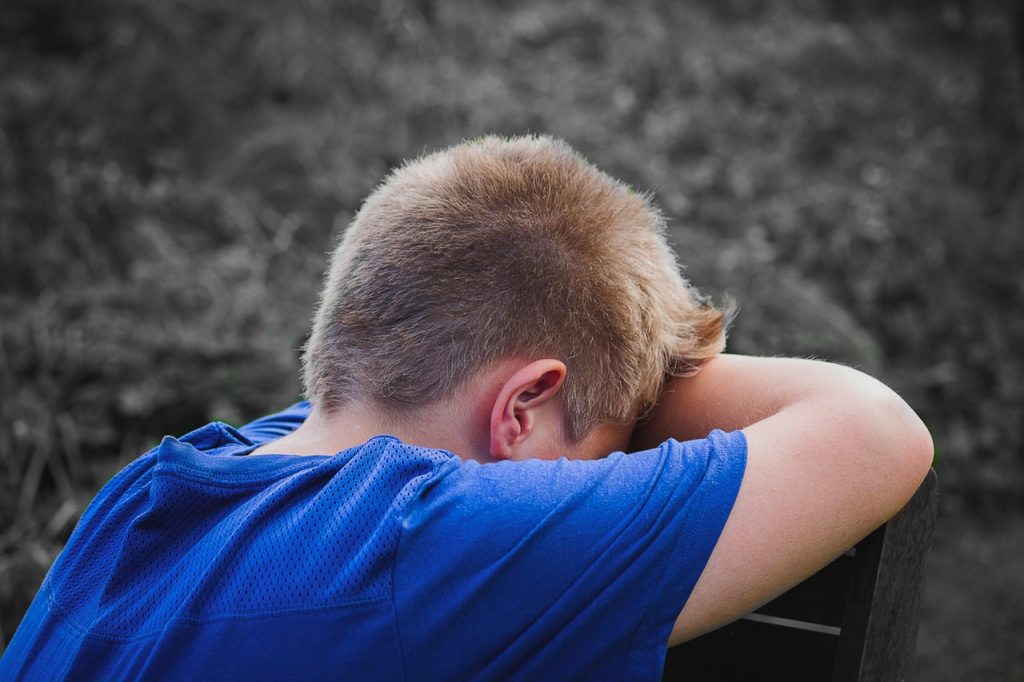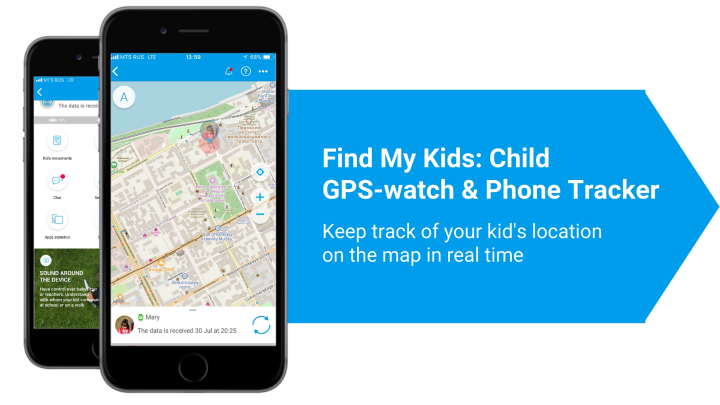This challenging age: how to help kids and their parents to go through the stage of adolescence?

Defensive, easily offended, fragile, brash – all of these adjectives describe teenagers. The ones who entered into the hard phase of adolescence. The ones who are on their way to becoming adults and the ones who encounter difficulties in understanding and accepting what is happening to them.
This article will address the topic of adolescence. In it, you will learn what does the notion of adolescence involves, what dangers await children and their parents, and what do the mother and the father have to do in order to help their child to go through this hard time.
Contents:
- What do we need to know about this age?
- Gender-specific features of puberty
- General features of puberty
- What dangers await the children and their parents?
- How to help the child to go through adolescence?
What do we need to know about this age?

Prostock-studio/Shutterstock.com
Psychologists have been spotting a pattern towards the «rejuvenation» of the age of adolescence, for some time. Kids now enter into an adolescence phase much younger than their parents – at 10-11 years old. An «extension» of the teenage stage up to 18-19 years old may also be noticed, when the child reaches adulthood at the age of 18 and starts separating themselves from their parents not only psychologically, but also financially.
According to Steve Mueller, the founder of the «Planet of Success» motivational community, as we continue to move on in life, we move from one stage to the next one. The first stages of life are birth, infancy, childhood, and adolescence that move towards adulthood. Early adolescence is a critical turning point in the individual’s life at which puberty causes a number of hormonal changes on a physiological level. It is a time ruled by strong emotions and the increased willingness to take risks.
The teenage phase can be divided into two main developmental stages of adolescence: early adolescence (10 to 12 years old) and late adolescence (starting from the age of 13 and is up to early adulthood).
- At an early phase of adolescence, the child already begins to feel grown-up, they start having more of a need for social interaction with their peers, their body starts preparing itself for the upcoming changes.
- By the age of 13-14 years, the hormonal spike in the teenager reaches its peak. The child becomes irritated and easily offended and starts having frequent mood swings.
- The adolescence is complete when a child enters into adulthood. Young men and women enter start making more mature and weighted decisions, their overall emotional state stabilizes. They start separating themselves from their parents and their family.
There is no certainty about how long will the adolescence stage last in your child. This is due to the fact that whilst having become physically mature, young adults may remain psychologically unprepared for an autonomous organization of their life.

Prostock-studio/Shutterstock.com
Why is this stage often referred to as a «transitional stage»? At this moment, the developmental stage of a child shifts from childhood towards adulthood. And at this time, the absolute priority for a teenager is to gain an understanding of themselves and to get separated from their parents.
Prostock-studio/Shutterstock.com
Puberty’s trigger lies in a small part of the brain called the hypothalamus, a gland that secretes the pituitary gland to emit two hormones. These hormones, in turn, signal the female and male sex organs to begin releasing the appropriate sex hormones which launch the signs of puberty in a body,
Adolescence is a trial phase not only for the children but also for their parents.
Two main tendencies can be spotted:
- The unwillingness to grow up, as «it is scary to try what feels unfamiliar», according to psychologist Carl Pickhardt. More freedom associated with more responsibility, as well as not being ready to te fully financially independent, makes it obvious for teenagers not to be willing to grow up.
- The second one is the willingness to find themselves in life. Teens often feel pressured to set goals and choose the next steps in their education or career as well as facing a changing job market, increased academic expectations, and the pressure intensified by social media, according to Shannon Traurig from the Center for Parent and Teen Communication. However, a lot of children feel the need to find their purpose in life as quickly as possible. They know where they’re going and their brain is occupied by important lifelong ambitions starting from an early age.
Why is it complicated for children?

Prostock-studio/Shutterstock.com
- They are changing both on the inside and on the outside. And sometimes, it may be hard for them to accept and control these changes.
- They strive to be socially accepted and to feel important. Instead of that, they may encounter mocking and aggression from the part of their peers or become a victim of bullying.
- They expect their parents to understand them and to accept all of the specificities of this phase. However, instead of that, they often face a controlling attitude, criticism, and restrictions.
- Seek autonomy and independence, but cannot obtain it yet, since they cannot take full responsibility for their actions.
In order to fulfill your child’s needs for autonomy and independence whilst caring about their safety, download the Findmykids app from the AppStore or GooglePlay. You will always know where your child is without asking tedious questions, calling or messaging.
Why is it hard for parents?
- They do not know how to act with children that are growing up.
- They are used to be the only authority to their child.
- They are not ready to let go with their son or daughter.
Gender-specific features of puberty

Prostock-studio/Shutterstock.com
In girls
What happens to girls at the age of adolescence:
- in the search of their personality and their style, they experiment with their looks and clothing, seeking to attract attention;
- interest towards boys as the opposite sex is increased, a sensation of first love appears;
- mood swings become much more frequent: incredible happiness may swiftly turn into deep sadness;
- heightened anxiety becomes more prominent, it is mostly related to academic performance at school, replying to a teacher’s question in front of the class or relationships with peers;
- strive to resolve their problems on their own without the help of adults.
In boys
Boys at the age of adolescence:
- become aggressive, rude and angry due to an increased level of testosterone production;
- become self-conscious;
- try to stun others with their brave actions and tend to show-off;
- often demonstrate a protesting behavior by skipping classes and running away from home;
- try alcohol, cigarettes and smoking blends;
- strive to belong to a «group», to be a part of it.
General features of puberty

Prostock-studio/Shutterstock.com
Puberty in teenagers is associated with increased production of sex hormones, both in boys and girls. This hormonal readjustment will lead to changes in the body complexion as well as in the personality and the behavior of the child.
Here are some characteristics of the puberty period:
- first periods in girls and nocturnal emissions in boys;
- changes in body height and weight;
- active functioning of sebaceous glands which often leads to acne;
- the development of the mammary gland and the rounding of hips in girls;
- the apparition of hair in the underarm and the intimate areas of the body;
- growing muscles in boys;
- an increased functioning of the sweat glands and, as a consequence, the appearance of a strong and unpleasant smell of sweat.
«An explosion of hormones» leads to the following distinctive features of the teenage period:
- an increased interest towards the opposite sex, including sexual interest;
- mood swings;
- becoming self-conscious about their looks;
- aggressive behavior, irritability, anger outbursts.
During this time, it is important for parents to do the following:
- discuss all aspects of puberty without any inhibitions. It would be better if mom or dad address those «uncomfortable» topics, rather than the child finds out about them on the Internet;
- under no circumstances, the child should be shamed for their heightened interest towards sexual topics. A lot of parents are shocked to find their son masturbating or their daughter watching porn. There is nothing horrible about it. Your child is growing up. If children were previously interested in car toys, dolls, and Lego, today they are interested in the relationships between men and women;
- do not laugh at the worries of your child related to their physical appearance. It is better to remind your child once again that all of the ugly ducklings always turn into beautiful swans, all that is needed is to wait;
- if the child is very worried about their extra weight or acne, it is worth seeing a medical specialist in endocrinology.
What dangers await the children and their parents?

Prostock-studio/Shutterstock.com
Let’s now talk about the factors that make the teenage period for a child harder and that parents should pay particular attention to:
1. Bullying at school
A timid child may become the victim of bullying, an aggressive one may act like a bully. And absolutely all teenagers may adopt the role of observers.
2. The dangers of social media
Social media is something without which kids cannot imagine their life. However, they also hold a threat.
A child may come across cyber-bullying with proposals to enter into «suicidal groups» or games. There has been a number of suicidal games circulating on the Web recently, for instance, the game «Run or die». It consists of one teenager running in front of the approaching car on the street at a minimum distance from the car, and in other teenager filming them. After that, this video is uploaded into the group and the participant has their «achievement» rated.
3. Getting involved with the wrong crowd

Prostock-studio/Shutterstock.com
Teenagers strive to belong to a group and to become the leader in it. Therefore, the chances for the child to get involved with the wrong crowd are quite high. This would be a group in which young people would commit unlawful acts, consume alcohol or do drugs.
Make sure that your child did not get involved with the wrong crowd, and that they are not causing damage to their health. Download the Findmykids app from the AppStore or GooglePlay.
4. Early sexual initiation
A heightened interest towards the opposite sex, coupled with curiosity and hormone «surges», often triggers an early initiation of sexual intercourses amongst teenagers.
5. Swapping the real world for the virtual world
When coming across misunderstandings with parents and a lack of friends, the child becomes more and more anti-social. Plunging into a virtual reality becomes for them a form of protecting themselves from the outside world. Through computer games, the child reaches «self-accomplishment»: through «heroic» deeds, «earning money», and thus, becoming successful in this virtual setting.
6. Suicidal thoughts
The appearance of suicidal thoughts in teenagers is related to conflicts within the family, bullying at school, first love, and a lack of friendly relationships with classmates.
7. Decreased academic performance
In the wake of a hormone surge and a changing functioning of their body, teenagers often encounter a decreased learning potential and a loss of interest towards studies. In more severe cases, the asthenic syndrome may develop which will manifest itself in increased fatigue, sleep disorders, frequent headaches, and nervousness.
How to help the child to go through adolescence?

Prostock-studio/Shutterstock.com
Parenting mistakes made when raising a child
As already mentioned, parents also face difficulties at this stage of life of their son or daughter. Therefore, a lot of us, sometimes unconsciously, tear the bonds of love and trust apart with their child, with their words and actions.
What is not recommended to do be done by the parents of adolescents:
- Criticize their friends and restrict their interaction with them («I don’t like your friend Tom, he does not dress up neatly and his grades at school are very poor. I don’t want you to be friends with him»).
- Making fun of the clothing and the appearance of your child («Why on earth did you apply so much makeup to go to school? You look like a clown»).
- Adopt an overly controlling attitude on all the areas of their child’s life («Who called you a second ago? Show me your phone right now»).
- Treat them like a little child («It is too early for you to know about that. We will talk about it when you will grow up»).
- Ignoring the worries of the teenager («Why are you whining in your room again? Go and study instead»).
- Compare the child with peers, classmates and friends’ children («Molly from your grades gets straight As all the time and helps her mother around the house, and your only worry is boys»).
How should parents act in this uneasy time?

Prostock-studio/Shutterstock.com
The psychology of the child is such that they would defend their opinion on any occasion, whether they are right or not. Therefore try addressing your child in a calm tone, without screaming or accusing. Hear their point of view out and come up with an appropriate solution to the conflict together.
According to Marriage and Family Therapist (MFT) Kelly Sanders, «when you are behaving as a parent, you are laying a solid foundation for a healthy friendship with your future adult child». However, developing a friendship with your child essentially is based on how you respond to your child, love them, guide, lead and have fun with them. Therefore, this friendly relationship is highly important in the short and the long term.
Discuss all the changes that are happening to your child, more often. The majority of parents do not do that, leaving their child to face their worries on their own. Touch upon the topics of early love, the initiation of sexual activity, the consumption of alcohol and drugs. Explain to them that not everything that their peers try out or recommend, is safe and harmless.
- Support your child in all of their interests and new beginnings (apart from those that could harm them). Even if you consider those interests stupid and not serious enough. It is not strictly necessary to let them know your opinion, most importantly, you need to respect theirs.
- Treat the teenager as a grown-up, even if you don’t consider them an adult yet. Grant them freedom in their decision-making, but remind them that this right comes with responsibilities for their actions.
- Switch from the «above» tactic into a «nearby» one. Become a friend to your child, their older fellow.
- Your child is growing up and is becoming more and more alienated from you. Do not try to stop this process with prohibitions and a controlling attitude towards their life.
- Pay attention to what your child is doing on social media. It is unnecessary to read their conversation – this is a private matter. However, there is nothing bad in knowing which online groups are they part of, you surely have the right to that.
- Frequent quarrels with the child in the majority of cases arise from adopting an excessively controlling attitude when parents start to get overly involved in the life of their child.

Prostock-studio/Shutterstock.com
In order to stop excessively controlling your child and getting into conflicts with them, grant them full freedom of movement. To stop being worried about your child and know where they are when they are not picking up the phone, download the Findmykids app from the AppStore or GooglePlay.
- If all of the conversations with your child reach to a common denominator of discussing grades at school or criticizing the mess in their room and the dirty dishes, you are risking to lose the mutual trust with your son or daughter.
- Going on walks and trips together as well as having deep conversations will help to improve the relationships with the teenagers much faster than preachy talks.
- Yes, you may not necessarily like the friends of your child. However, criticizing them or not allowing your child to see them is not the best way to go. The teenager will consider it as another attack on their independence and self-sufficiency in their choice of their friends.
Psychologists Catherine Hartley and Leah Somerville address the topic of adolescents’ decision-making. They conclude that this process is highly different (from the one of adults or young children) due to normal maturational changes in the brain function. This could be explained by the fact that several aspects of decision-making such as the integration of positive and negative feedback are not yet tuned to typical adult levels in teenagers. On the other hand, other aspects are uniquely amplified during adolescence, such as learning from direct experience and the actions of others.
- If your child encounters a lot of difficulties when going through this stage, your son or daughter gets more and more alienated from you, is depressed or cries often – you should definitely seek the assistance of a psychologist! These can be the signs of bullying at school, conflicts with peers, the apparition of depressive and suicidal thoughts.
If your child got involved with a wrong crowd

Prostock-studio/Shutterstock.com
- Do not go into panic mode. Ask yourself: is this friend group bad for me or for my child? If the child receives respect, appreciation, and support there, they will be highly inclined to carry on being a part of this group.
- Get to know the friends of your son or daughter, invite them to your house or on a picnic. It is possible that your opinion for them will change.
- Remember: restrictions and blackmailing will not help! The child will still carry on seeing their friend group secretly.
- If your worst worries turned out to be true, and the child did really get themselves involved with a wrong crowd, your main focus would be to bring back the relationship based on mutual trust with your son or daughter and to try your best to understand the reason for which this group of friends seems so attractive to them.
- Try to build the interest of your child in other domains such as sports, music or computer coding.
- If you find out that your child has become a part of a religious sect or a criminal gang, do not waste any more time! Change schools, your area of residence or city so that your child does not have the temptation to get back to their old «friends».
Tips for parents from an expert psychologist

Prostock-studio/Shutterstock.com
A lot of parents break tight bonds with their child because of the lack of knowledge of their psychological organization and of the types of personality. However, the major thing to be admitted is that the child has changed: they now have their own uniqueness, their principles, and boundaries and therefore, it is important to find the correct approach to them in a friendly manner. To do this, you will need to move away from the parental approach of «what I am doing is right» and become a friend to your child. A friend means support, the ability to listen and hear your child out as well as reaching a compromise in order to communicate, again and again, meet up with each other and be looking forward to those meetings.
One other important aspect – it is not necessary to always be constantly requesting something from your child. When they just want to be left alone – do not interfere with that, this will pass. In general terms, it is important to remember the phrase «this too shall pass» – it is like letting the waves in the sea touch you and leave. They will always go away and it is impossible to control them, they are unstoppable.
Feel this movement of the waves and you will immediately feel relieved. The next waves coming up will bring you happiness, mutual understanding, gratitude, patience, respect and a tighter bond in general – this will not be perceivable, but will be absolutely vital.
Dear parents, please remember that the adolescence of your child or daughter is a temporary period that will not last forever, it will be over at some point. Do your best to keep a good relationship with trust, do not push them away with restrictions and condemnation. An adolescent really needs your love and support, no matter how hard they sometimes try to disprove it.

Prostock-studio/Shutterstock.com
Проверьте электронный ящик




















